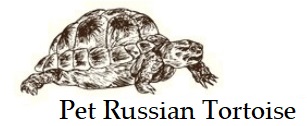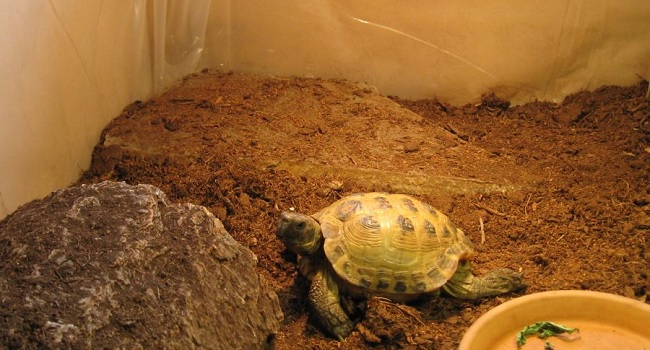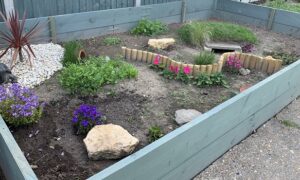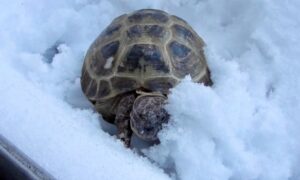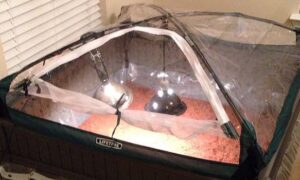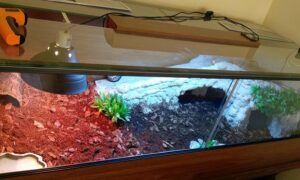There are many options of substrates to use in a Russian tortoise enclosure. However, some are better than others. Substrate with perlite or fertilizer is not an ideal substrate to use, whereas an organic soil or mulch make a great substrate for Russian tortoises.
When choosing a substrate for Russian tortoise enclosure, check out these safe substrates.
Coconut Coir
You can find Eco Earth or other coco coir substrates sold specifically for reptiles. However, organic coco fibers are also sold for plants at garden shops. Coconut fibers are fine-grain and stimulate the natural urge to dig. It holds humidity well, and most of all, it’s a safe substrate for tortoises. The best way to use coco fibers in a Russian tortoise enclosure is to keep it moist. When it’s dry, the substrate become dust and particles can get into your tortoise’s eyes, irritating them.
Orchard Bark
You can buy orchard bark from your local garden shop. Orchard bark holds humidity well, and unlike coconut coir, it is less likely to irritate your tortoise’s eyes if it dries out. But, you’ll still want to keep it moistened to ensure proper humidity in the tortoise enclosure.
If you’re looking for orchard bark at a pet store, or online, the closest reptile product is Zoo Med’s Reptile Bark. Reptile Bark is made from fir trees. the bark absorbs water and releases it, creating humidity needed for Russian tortoises.
Cypress Mulch
Cypress mulch is another favorite substrate for tortoises. Unlike, pine and cedar, it is a safe mulch to use in reptile enclosures. You can purchase plain cypress mulch from your local garden store in large bags. Cypress mulch is often dyed, so be careful to choose a natural mulch. If you’re looking for a reptile-branded product, Zoo Med’s Forest Bedding is 100% cypress mulch.
Top Soil
Plain top soil sold at your local garden shop is also safe for Russian tortoises. Buy organic top soil if you can find it. But a plain – additive free – top soil is safe.
Peat Moss
Peat moss has a high water retention, which increases humidity levels in an indoor enclosure. Essentially, it is a fine-grain moss, resembling a soil. Hoffman sphagnum peat moss is a safe peat moss for indoor and outdoor enclosures.
Substrate to Avoid with Russian Tortoise
There are plenty of safe substrate options to use in a Russian tortoise enclosure. But, you want to avoid using these bedding types in a tortoise enclosure
- Aspen shavings – aspen is not toxic, but it is a very dry bedding not ideal for tortoises
- Cedar mulch or pine shavings – both have toxic oils that can harm your tortoise
- Hay – hay can mold easily in humid environment
- Newspaper
- Pellets – paper pellets and wood pellets are hard for tortoises to walk on and cause muscle and bone development issues
- Play sand
- Soils with fertilizers, perlite or other chemicals
- Walnut Shells
- Coco shell mulch
